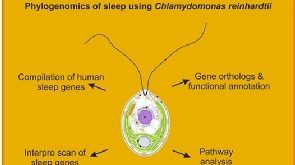As World Menopause Day approaches, a new study aims to shape policies that will change the way the workplace values and supports older women.
Delhi, 17 October 2022: Professor Rebecca Mitchell, of Macquarie Business School, is leading a study that draws together Macquarie Business School’s Health & Wellbeing Research Unit and Psychological Sciences researchers, including Professor Kerry Sherman, of the Faculty of Medicine, Health and Human Sciences.
Silence no more: a team of academics at Macquarie and Griffith Universities aims to start conversations about how workplaces can support women in menopause to thrive and advance in their careers.
In collaboration with a team of researchers from Griffith University’s Work, Organisation and Wellbeing Centre, this project will explore the intersection of menopause and women’s careers through a positive psychology lens.
Professor Mitchell says women are to some extent on their own when it comes to managing menopause. There are big gaps in the research around how women, as leaders, progress through this period.
“There’s nothing [in the literature] about how women can become more effective, more productive, how they can change careers, be adaptable, transition into new ways of working; there’s nothing about that at all,” says Mitchell, who specialises in conducting research that informs policy and leadership practice.
“Nobody wants to talk about it. And that’s amplified by the fact that people don’t know what to say, because there’s this dearth of research to guide them. There’s a skerrick of research that looks at what can be done, but a lot of the solutions are generic: time off, education and training, and so on.”
Changing the narrative
While the brain fog, memory loss and anxiety that are symptoms of menopause can be devastating to careers, it’s only half the story. Instead of, “How can we help you with your symptoms?” says Mitchell, we should be asking, “Are there ways we can maybe support you to advance your career path or to take advantage of some of the positive changes that can occur with menopause?”
Mitchell and her colleagues are out to change the relentlessly negative narrative around menopause.
“Menopause has long been subject nobody talks about. We want to open that dialogue.”
“Our aim is to map the gaps,” says Mitchell, “and to that end we’ve issued an international call-out for research in this area. Over the next three years, we anticipate shaping strategies and legislation and workplace policies that will change the way the workplace treats menopausal women.”
Mitchell says research suggests that some employers tend to regard menopause as a personal, private issue. “There is little guidance for HR professionals in supporting women through this stage of their reproductive lives, in contrast to pregnancy and maternity.”
What just happened?
Mitchell is pushing back against the idea that menopause defines older women. There is little understanding, she says, that this is a transition 50 per cent of the population go through.
Road blocks: the onset of menopause is likely to occur when many women want to advance into more senior positions but a Harvard study found one in four women felt their symptoms negatively impacted their work opportunities.
“Women should not be seen as essentially ‘different’ and less relevant because this has happened to them. We don’t think that way about a pregnant woman, or a mother [or] father, so why should we think that way about menopausal women?
“It is around menopause age that many women are seeking new identity and meaning in their later careers – the ‘leader emergence’ stage. Yet, the image of the strong, technically competent, authoritative leader is someone who has their emotions under control, which may not be possible for a woman experiencing menopausal symptoms.”
Ironically, menopause may be an advantage, not a challenge, as it has been associated with what are called more agentic behaviours – more purposeful, active and assertive leadership – but this remains hidden due to a lack of research.
Menopause has long been a taboo subject. Or worse. “The more obvious signs of menopause are used to ridicule and undermine professional women,” Mitchell says, such as the comment in one research paper that maintained women were “a danger to the spoken or unspoken social order of [an] organisation on account of their ‘leakiness’, unboundedness, unpredictability or unreliability”.
Menopause is triggered by declining levels of the hormones oestrogen and progesterone. It announces itself at around 51. Just as many women are reaching a career pinnacle.
A 2020 Harvard Business Review study reported that menopause occurs when women are most likely to move into top leadership positions. However, one out of four women within this demographic felt their menopause symptoms negatively impacted their career development or work-related opportunities, while 17 per cent had quit a job or considered quitting because of menopause symptoms.
Expertise missing in action
The most commonly reported difficulties that menopausal women report at work include poor concentration, tiredness, poor memory, reduced confidence, feeling low or depressed.
Where did they go? Professor Rebecca Mitchell says her team’s research also aims to understand why many women give up leaderships goals, move to part-time employment or are demoted at a life-stage which coincides with menopause.
Another 2020 report, Antidepressant Use Among Adults: United States, 2015-2018, published by the Centers for Disease Control and Prevention, found that women of perimenopausal, menopausal, and postmenopausal ages use antidepressants more than any other group. Antidepressant use was highest among women aged 60 and over (24.3 per cent), closely followed by women aged 40 to 59 (20.1 per cent).
Failing to support staff through this stage of life puts institutions at risk of losing the expertise of senior women. For Mitchell and her team, unlocking strategies for that support is key.
“The gaps in our knowledge are substantial. There’s a lot of transition around this stage of career that has nothing to do with menopause. We don’t know enough about why people give up their leadership aspirations, move to part-time employment, or are demoted. We just have no idea which factors coincide with women’s progression, which affect their identity, their confidence, or, indeed, what makes them flourish after menopause.
“Menopause has long been a subject nobody talks about. We want to open that dialogue.”
Rebecca Mitchell is a Professor in the Department of Management and is also affiliated with the Health and Wellbeing Unit in the Macquarie Business School.
 Newspatrolling.com News cum Content Syndication Portal Online
Newspatrolling.com News cum Content Syndication Portal Online







